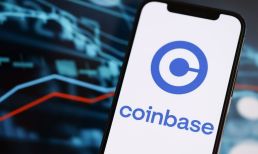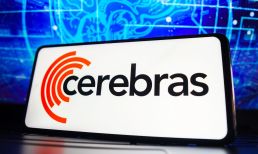At a time when online shopping has surged to represent almost 20 percent of total retail sales, fueled by the ubiquity of free shipping and free returns, San Francisco-based startup TryNow is challenging industry norms and transforming consumer behavior by allowing customers to try on their purchases at home to decide if they want to purchase them before being charged.
“For the past 20 years, we’ve been told that high return rates will erode margins, they’ll kill your business,” TryNow Founder and CEO Ben Davis said in an interview with PYMNTS. “Our contrarian idea is that high return rates can actually be healthy for your business.”
If trying before you buy seems a lot like a brick-and-mortar transaction, that’s because it is. Davis believes that imagining the inverse is a good way to illustrate how absurd online apparel buying actually is, and why 97 percent of customers abandon their order in the cart and don’t end up buying anything.
As Davis explains it, picture going into a Gap store and trying on some pants and a couple of shirts — but before you enter the fitting room, an associate asks for your credit card and $175 to pay for your purchases in advance. Of course, if you don’t like them, you can apply for a refund later.
“Nobody would do that. Nobody would ever operate a brick-and-mortar store that way, but we are all operating our online stores that way,” Davis said, predicting that in the coming years, “try now, buy later” (TNBL) will become the standard for eCommerce.
A Simple Equation
Advertisement: Scroll to Continue
Because most retailers have been so singularly focused on reducing their return rates, to the point where some even now decline to accept low-priced items, Davis said they’re taking a short-sighted view of the purchasing process.
“You will spend $3, $4 or $5 more per order on average for return costs, but you’re decreasing customer acquisition costs by $20 to $30, you’re increasing average order value by another $20 or $30 — and then all of a sudden, the math becomes, ‘Will you spend an extra $4 on return costs to generate an extra $50 in revenue?’ And of course, the answer is yes,” he explained.
Given that these metrics have historically been very hard to get, Davis said the value of the TryNow platform offsets the increased cost of returns “by several orders of magnitude.” Specifically, TryNow said its brands have seen a 63 percent increase in average order value, a 22 percent rise in conversion rates and a 76 percent jump in return on ad spend.
“If you don’t set up your business to encourage great products to be tried on first, then you miss out on all of those other shoppers that might be interested,” he noted — particularly those who so-called “bracket shop,” which means buying multiple different sizes of the same item in hopes that at least one will fit and they can return the others.
The Ultimate Checkout Option
Although the growth of revamped installment plans under the buy now, pay later (BNPL) banner have led the consumer financing arena this past year, Davis thinks that try now, buy later can mutually coexist with BNPL — and eventually become as big in terms of a buying category.
For the time being, TryNow is focused exclusively on connecting its platform with retailers that sell through Shopify. While the concept itself is not new and has been used for years via online retailers like Warby Parker, Stitch Fix and Amazon Wardrobe, TNBL hasn’t really scaled — at least not yet.
“At Shine, we are attracted to businesses with simple yet powerful insights that can ultimately lead to massively scalable new platforms,” said BuyNow investor and Shine Capital partner Mo Koyfman, who pointed out the huge opportunity that exists to reinvent retail for online shoppers. “It is rare to find such a strong team attacking such a simple but big idea,” he added.
In a recent press release announcing a $12 million round of fundraising, investor Brian Murray of Craft Ventures went as far as to call TNBL “the ultimate checkout option.”
“[Try now, buy later] translates into more order volume and more profit,” Murray said. “We all want to try before we buy: It’s only a matter of time before TryNow’s checkout solution becomes the standard.”




